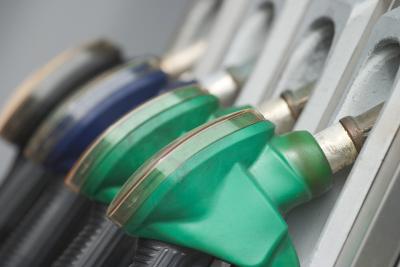Gas is expensive, even if you drive a fuel-efficient car. It’s important to maintain your vehicle with regular tune ups and home checks to make sure you’re getting the most out of your automobile. If you notice a sudden drop in miles per gallon (mpg), don’t run straight to a mechanic. Instead, check on these common reasons for a sudden mileage decrease that you may be able to fix yourself.
Inefficient Driving
Inefficient driving can drastically affect your vehicle’s gas mileage. Follow the speed limit and avoid going over 60 miles per hour for long amounts of time, as most vehicles become less efficient over that speed, according to the U.S. Department of Energy. If you take a long trip on interstate highways and you constantly drive more than 60 miles per hour, you will notice a decrease in gas mileage.
Oil
Before an oil change, always make sure that you get the right viscosity for your vehicle. Most vehicle owner’s manuals state exactly what type of oil to use for optimum mileage, with names like 10W-30 or 5W-30. If you get the wrong oil you may notice a drop in mpg and overall poor performance, especially in extreme heat or cold.
Heavy Loads
If you have been driving with a lot of extra weight in your vehicle, you may be decreasing your gas mileage more than you would imagine. For every 200 pounds of cargo and passengers in your vehicle, you lower your mileage by 4 percent, according to the Federal Trade Commission. Eliminate excess weight by emptying your trunk, backseats or cargo areas.
Tire Condition
Tires can drastically affect your vehicle’s mpg. Check your tires regularly and keep their pressure at the manufacturer’s recommended pounds per square inch (psi) for optimum gas mileage. The amount is usually printed right on the tires themselves. Also, tires that are old and have begun losing tread can lower your mileage. If your tires are balding or in poor condition, have them repaired or replaced.
Thermostat Problems
In newer model cars, your engine coolant is regulated by a computer-run thermostat. If the thermostat malfunctions or breaks, your vehicle may be cooling itself all the time, even when it doesn’t need to, resulting in bad performance and terrible gas mileage. Take your vehicle to a mechanic and have them run a diagnostic test on it if you believe this is the problem.
Blocked Air Filter
For older vehicles with carburetors, a clogged or dirty air filters results in poor air intake and a gas-rich fuel mixture. Using more fuel than necessary lowers your mileage and is bad for your engine. If your vehicle doesn’t have a carburetor, a blocked air filter can cause bad acceleration, but not bad mileage.

The Causes of a Sudden Decrease in Gas Mileage
by
Tags:

Leave a Reply